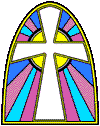
FLORISTS TIPS
To keep plants watered while you are away for a few days, place one end of a pipe cleaner into the soil by the plant and the other end into some water. The pipe cleaner will gradually draw up the water.
To keep plants alive during a longer stay away. Place a towel in the bottom of the bath and add 1" of water. Place house plants on top of the towel. They will draw up the water while you are away.
Don't buy roses in tight bud as the chances are they will not open. Buds should be unfurling slightly.
Spray dried flowers with hair spray to prevent them from dropping.
To fluff up dried roses, hold rose head over a steaming kettle and gently tease out petals.
To remove dust from silk flowers, put some table salt into a paper bag, put flower heads into back and shake vigorously. Remove flower from bag and it will be dust free.
Poppies keep longer if you singe the stems over an open candle flame.
To revive dropping tulips or roses, wrap tightly in newspaper and put into water up to their necks. Leave overnight.
If your roses are wilting, cut 1cm off stem, wrap in paper, plunge stems into boiling water for approximately 10 seconds, then put into deep cold water.
The sap of the Euphorbia (of which the poinsetta is one) is an irritant - always remember to wash hands after handling.
Don't place flowers in direct sunlight, over radiators or on top of television sets. Keep in a well ventilated part of the room out of direct sunlight.
Don't place flowers next to fruit as fruit gives off a gas which prematurely ages flowers. Remove dead flowers as these also give off gases which affect the others.
Non-scented flowers last longer!
Lily stamens should be removed as soon as the bloom is sufficiently open as the pollen can damage fabric and polished wood surfaces.
If the flower head is too heavy and the stem is hollow, put a garden cane up inside the stem to support bloom.
Soak vases overnight in bleach to remove bacteria. Dirty vases shorten the life of cut flowers considerably.
To help when repotting plants into larger pots, place the current pot into the larger pot and push compost firmly into the gap between the two. Gently remove the inner pot which leaves the correct size hole into which the plant can be dropped.
COMPUTER TERMINOLOGY
BOOKMARKS - Words, pictures, web sites etc. that have been marked in order to enable immediate access from within a list in your browser.
BUG - An error in hardware or software that causes it to malfunction or crash.
CD ROM - Computer Disc Read Only Memory
CHIP - Abbreviation of microchip. A small piece of semiconductor material (usually silicon) soldered onto printed circuit boards, used to carry electronic circuits
CRASH - Stops working suddenly.
DATA BASE - Structured set of data/information held within the computer.
DESKTOP - What is on the screen after booting up.
DISK - Data storage medium e.g. floppy disk, hard disk.
EMAIL - Electronic mail. Messages sent between computers.
FILE TRANSFER - Accessing information from other computers via networks.
LAPTOP - A portable computer.
MIME - Multipurpose Internet Mail Extensions. Standard for the transfer of binary email attachments.
MODEM - Device used to convert date from analogue to digital and back again e.g. between a computer and telephone line.
The term "modem" is an abbreviation for MODulator/DEModulator, and is a device that converts a digital signal (from the computer) into an analogue signal (audio in this case), which is sent through the telephone wires. At the 'other end' another modem receives the analogue signal, converting it back into a digital signal and back into the computer.
MOUSE - A device used to move the cursor on the screen.
MULTIMEDIA - An application combining text, graphics, motion video and sound.
NETWORK - Several computers linked together by cables, radio waves or telephone lines.
ON-LINE - Connected to a computer or network.
PC - Personal computer.
RAM - Random Access Memory
ROM - Read Only Memory. Information that cannot be altered.
SEARCH ENGINE - This is a piece of developed software to interrogate the Internet to locate and list Internet sites from a pre-selected search argument.
SOFTWARE - Programs and other operating information used by the computer.
SURFING - Accessing information from other computers via networks etc.
"Surfing" is in fact the act of interrogating and exploring the Internet via a search engine.
WEB BROWSER - Software used to gain access to the world wide web e.g. Internet Explorer and Netscape Navigator.

No comments:
Post a Comment